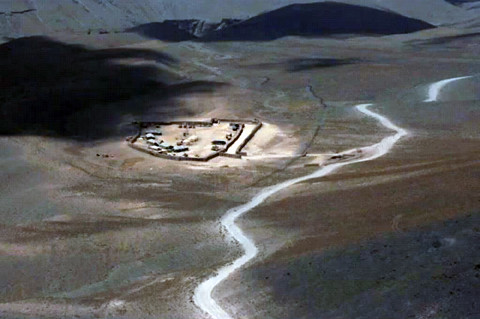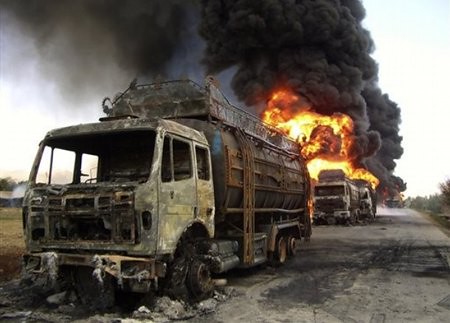Two American soldiers (not yet identified by the Pentagon) died in Logar Province on Thursday, April 22, 2010, during an exchange of gunfire in an isolated family compound, on the road between Pul-e-Alam and the town of Baraki Barak.
Baraki Barak is the original homeplace of the Burki/Baraki/Ormuri, (historically also known as Barak, Baraki, Birki (of Baburnama), Barki, Braakee or Urmar), a Pushtun tribe now concentrated in Kaniguram. in South Waziristan, Pakistan.
Like other Pushtun tribes, the Burki (Barak, Baraki, Birki (of Baburnama), Barki, Braakee or Urmar) seek self-segregation from the outside world: thus the importance of Kaniguram as the historical focal point of the tribe and the continued effort to retain their native tongue (Urmar), which predates Pushtu.
The Barakis’ most celebrated chieftain was the warrior-poet Pir Roshan, who invented the Pushtu alphabet, advocated universal education and equal rights for women, and led a rebellion against the Mughal Emperor Akbar in 1582.
This rebellion continued for about 100 years, until the grandsons and great-grandsons of Pir Roshan finally made peace with the grandsons and great-grandsons of Emperor Akbar.
………………………………………….
Three days after a couple of American soldiers were killed along with three Afghan civilians/insurgents/whatevers during one of General Stanley McChrystal’s signature midnight commando raids in Logar Province, “protestors” blocked the main road through the district capital of Pul-e-Alam, and burned 16 NATO fuel tankers.
The local commander of the Afghan National Army, Brig. Gen. Ghulam Mustafa Mohseni, complained that NATO had declined to consult with local authorities before the midnight raid, and relied instead on the same kind of intel which has failed and failed and failed to track down Osama bin Laden in nearby Waziristan for nine long years.


